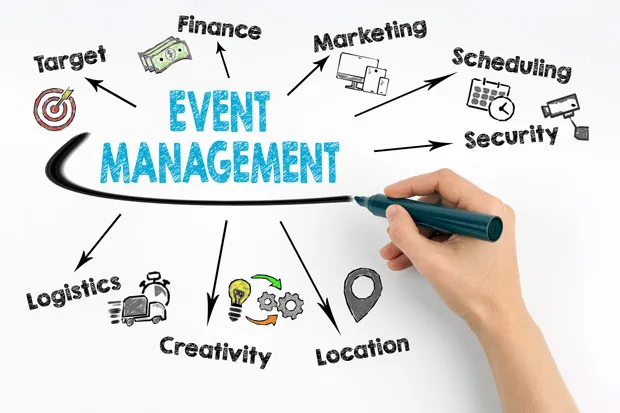If you’re about to launch yourself into the search for a new career, then there’s no better time to consider Event Management, one of the UK’s fastest growing industries.
With firm foundations within other sectors such as business, sport, arts, music and hospitality, the events industry is one of the largest growing industries in the UK, with an estimated value of up to £42 billion in 2015 with a projection to swell to almost £50 billion by 2020 (All Party Parliamentary Group for Events report, 2011).
The extent of events
The vast umbrella of event management includes an extensive repertoire of possible events, which include hospitality, retail and education.
Many of these are familiar to most of us and recognisable in event listings at institutional, local, regional, national and international levels, such as:
- Conferences and meetings
- Exhibitions and trade fairs
- Incentive travel
- Corporate hospitality, entertainment and team-building
- Outdoor events
- Festivals, arts and cultural events
- Music events
- Sporting events
Why is Event Management popular?
At a global level, the UK event management industry has seen a significant surge since that ultimate UK-hosted international event, the 2012 Olympic Games. Since then, travel to the UK for specific events has seen a growing popularity from international corporations, whilst the UK’s gradual economic recovery from recent downturns has seen greater national investment in staff training and team-building.
n addition to this, UK companies have begun to invest significantly in their own growth, share success and make wider connections through holding and attending industry-specific, corporate, B2B and hospitality-focused events of all kinds, from that extensive events repertoire.
What does the job offer?
A position in events management offers diverse job roles which can see you organising a team-building experience for one client, to organising and running a festival event for another. As such, event management roles present a breath-taking range of new challenges which require creative thinking and offer , potential for job satisfaction and personal (as well as professional) growth.
Additionally, working within such a fast-developing industry offers excellent potential for progression and promotion within individual companies and the overall industry, as event managers who can quickly establish productive working relationships, develop innovative and creative new event ideas and demonstrate success in their own outcomes and for the clients they are serving become sought-after very quickly.
Most UK event management companies promote their own people who have proven themselves in meeting the exacting standards required by clients and increase the reach and reputation of the company they’re working for.
But what does this look like as a job ‘description’?
Event management covers several roles of various levels of client involvement and event organisation and project management. Depending on the role and level of involvement, the daily work of an events manager can include such tasks as:
- Creating ideas and concepts for events.
- Managing event budgets, including researching and negotiating costs.
- Researching and risk-assessing venues.
- Creative design for venues.
- Drawing up schedules and deadlines for events and preparatory actions.
- Operational management and support, across the organisation of personnel such as security teams, travel and ticketing personnel, waiting staff, equipment crews and hospitality staff.
- Undertaking health, safety and risk management tasks.
- Keeping in contact with clients, venues and other service providers for each event.
- Problem-solving and contingency planning – because problems, complaints, issues and restrictions will arise, it’s the event manager’s job to ensure that these are dealt with effectively and efficiently, to company standards and to client satisfaction.
- Publicity and promotion.
- Marketing and sales of inspirational services and processes through publicity, promotional activities and networking.
The actual role of event manager which could include any of these tasks as part of managing the services for a client, from the inception and idea for an event to the logistical planning, researching, resourcing and ensuring safe delivery of the event itself. Another role which may also overlap – or be incorporated into the role of event manager for a company – is a dedicated sales and marketing role. This part of the role focuses on marketing the services of the company, generating interest in the services and engaging clients to use the services.
Let’s talk salary…
As with most sectors, the salary for events staff can depend on the level of experience and qualification as well as on the level of responsibility within relative positions. Examples of current (2015) salaries and positions include:
- Initial salaries of around £17,000.
- Event administrators – £18,000 per annum approximately.
- Event co-ordinators – £20,000 per annum approximately.
- Event and Sales managers – up to £35,000 per annum approximately.
Many event management companies also offer performance-related bonuses in line with in-house progression opportunities and their own business development plans.
And training?
Finally, the job offer with some event management companies may include on-the-job or relevant professional training through an accredited training provider, ideal for those coming into the profession as a career change. Other companies might offer enhanced pay for graduates coming into the profession with a relevant degree, M.A qualifications and commensurate experience, or the degree equivalent of these.


